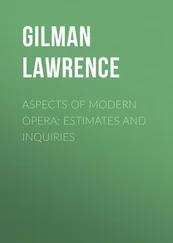“So be it,” said Methuen, starting to resume his formal black chartered accountant’s uniform. The cardboard box was carefully locked away in Carter’s safe against the journey, and Mr. Judson returned to the Embassy to wrestle with the accounts. In fact he spent an exhausting hour with Porson going over the whole journey in detail, and most particularly with that part of it which concerned him most. He was glad that there was a short breathing spell before he undertook the next and most hazardous part of the adventure. He liked to feel his way into the part he was to play, and to let all the available evidence fall into a pattern in his mind.
Having prepared himself as well as he reasonably could for the hazards of the trip he asked Carter to take him out to dinner, and if possible to the opera. He wanted to make a complete break with the subject of his preoccupation: to let it simmer on in the subconscious while he was left free to be, for however short a time, a normal man, enjoying everyday things. But the mind is a capricious thing. Once started along a train of reasoning it is not easy to sidetrack it with lighter distractions; moreover the mind itself, when busy with a problem, is often like a hound on the scent. Without any conscious effort it leads one further and further along the road of inquiry, picking up evidence.
How else can one account for the fact that Methuen, finding he had an hour to spare before the Embassy closed, strolled into the central registry and asked for the master-file containing the despatches written during the last few months. He was simply amusing himself and collecting a little political background material. But idly reading through the despatches, his attention was drawn to one which described the nature and contents of radio broadcasts from Belgrade. After summarizing the various types of programme the report referred to the “apparently endless series of national poems which are broadcast one at a time, after the eight o’clock news every evening by the famous actress Sophia Marie”. Something in the back of his mind told him that there was a clue to be discovered behind this simple observation and it was with a pleasant sense of anticipation that he turned to the files of the BBC monitoring station — that prodigious organization which records almost every radio programme in the world. It was not difficult to turn up the broadcasts in question. The titles of the poems read were neatly listed and Methuen saw, with some emotion, that the little poem, part of which has already been quoted, was the first to be broadcast, and was repeated twice during the first week.
He took this fragment of information along to Carter, who refused to be excited by it. “It is most likely just a coincidence. After all, every schoolboy is given a pretty steady diet of these damned epics and folk-songs. I listen to these recitations you know: my Serbian teacher makes me do it as pronunciation practice. In fact I’m working from the very book that Sophia Marie is reading from; I remember noticing that she is using The National Treasury because she gives the number of each poem at the beginning and end of the transmission.”
“Could I see your copy?”
Carter obligingly ferreted it out from among a stack of papers and Methuen retired once more to the central registry and reopened the monitoring files. The broadcasts had begun about three months previously — in fact just about the time that reports of the first arrests of Royalist “bandits” had begun to be published. If only he could trace the smallest connection between one thing and the other.… Methuen sighed deeply and shook his head as he read through the highly coloured romances of feudal times. What a jumble of Slav imagery to wander through! How could there be any kind of message embedded in all this? Nevertheless he noticed one thing of interest. Several of the poems had been repeated twice by the actress. “Suppose,” he said to himself, “there was some kind of message to be passed. Repeating a poem might draw attention to it. The listener would know that a twice-repeated poem was one containing a message.”
This was all very well; but the poems themselves offered very little foothold for his theory. He was putting away his files when Carter and Porson came down with their red despatch-cases and found him waiting there. “Closing time,” said Porson. “Away with dull care. Carter and I are going to take you out to dinner, old man. You will be allowed to choose it of course.”
“Did you have any luck?” said Carter.
“None at all.”
“Bad luck. I thought there was nothing in it.”
“Nevertheless I’ll take your book home if you don’t mind and re-read the poems I’ve marked as having been twice recited.”
But he was not happy at dinner; his mind was tugging at the problem as if it were on a leash. A curious kind of sixth sense told him that there was something to be made of this jumble of words if only he could find the key.
They dined in one of the only three eating-places available to foreigners: for almost every restaurant in Belgrade had been turned into a canteen where the ragged and half-starved proletariat queued up for its ration of ill-cooked food. Around them in the gloomy ill-lit Majestic Hotel sat the sleek and shaven members of the police and the party, and the fat sleepy members of the intelligentsia — the artists and writers who had given in. An air of desperate, shiftless boredom reigned over everything. Porson made one or two desperate sallies, which fell flat upon the stale air of the place. Then he too fell silent. “I hope”, said Methuen, “that I am not depressing you. The truth is those damned folk-songs and epics are still going round and round in my mind. I feel there’s something very obvious which I have missed there.” Carter smiled and shook his head: ‘False scent,” he said. “I bet you a fiver.”
“My concern”, said Porson, “is gastronomic. This omelette tastes like Stalin’s moustache.”
They walked out into the main square of the town together and Methuen smelt the curious stale smell that the Yugoslav public seemed to carry everywhere with them: sour sunflower-oil and rancid kaimak. It hurt him to see how shabby and frightened everyone looked. He had heard of police terror but this was the first time he had come across anything which permeated the very air of the town. The silence, too, was extraordinary; nobody sang or talked aloud, there were no shouts or whistling. Only the dull clump of boots on the broken and scarred pavements of the town. The scattered street lamps carved great pools of black shadow under the trees. At the door of the opera a crowd seethed, waiting to buy rejected tickets. They made a way for the foreigners and looked at them with a hang-dog air of sheepish envy. At the same time two large sleek limousines drew up at the door and the chauffeurs raced to open the car doors for a small group of high party officials. At once there came a burst of sycophantic clapping which echoed in the hollow street like a burst of machine-gun fire.
The performance of Fidelio was preceded by a speech about its dialectical significance by a young man with wavy hair who spoke with a strong provincial accent. He was very nervous and gabbled out his speech from a typescript. It consisted of a rigmarole about Marxist values and the meaning of art for the people. The audience waited in painful silence for it to end, and Methuen, watching the rows and rows of haggard faces from the box which had been placed at the Embassy’s disposal, felt once more a stirring of pity for the boisterous, good-natured lackadaisical Serbs he had once known. There were a number of smartly dressed officers in the stalls, but what was so striking was the shabbiness of the women. Their clothes looked like the hastily improvised remnants of a jumble sale; they wore no make-up, and there was hardly a head of waved hair. For the most part they wore their hair brushed stiffly back and pinned with a cheap bone slide. “There it is,” said Porson in a whisper, “drink it all in.”
Читать дальше












